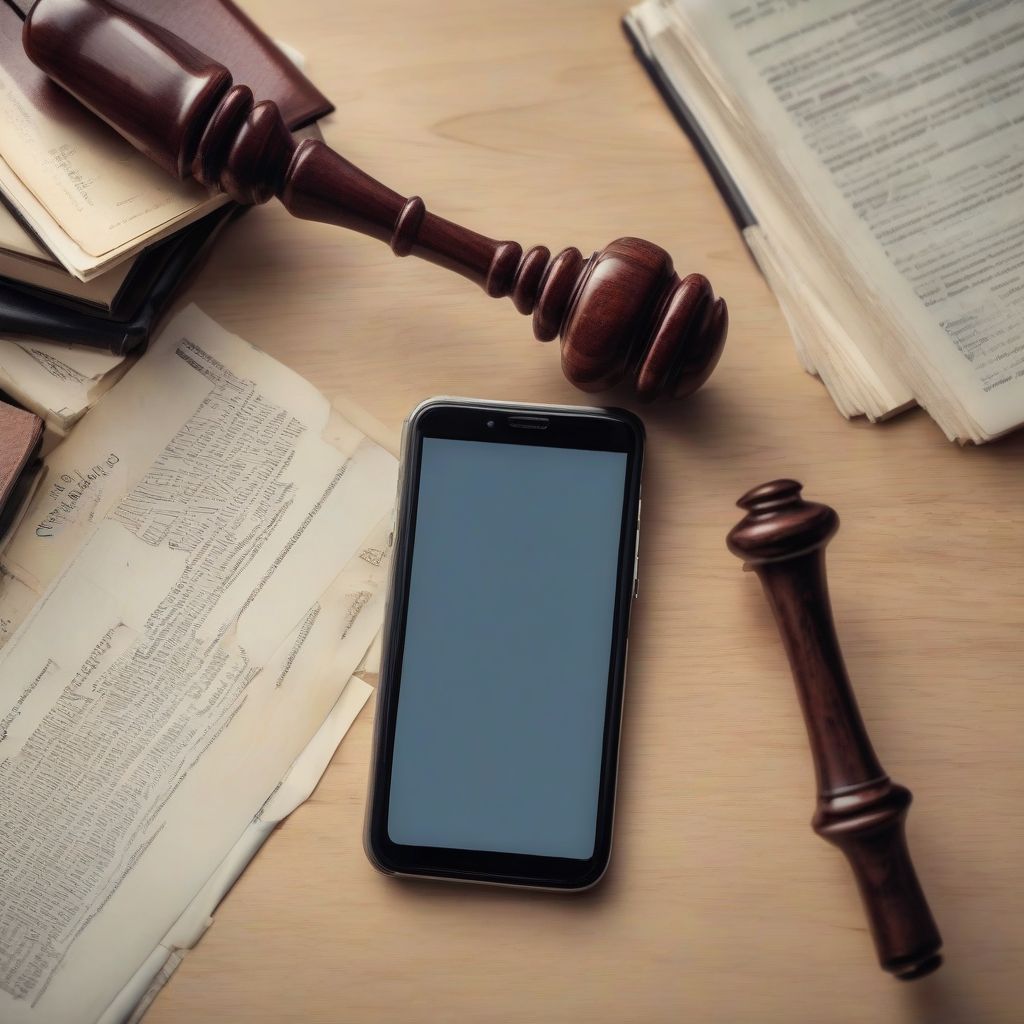Filing for bankruptcy is a significant legal step with long-term financial implications. It’s a process that involves navigating complex legal procedures and paperwork. It’s understandable to wonder if you can navigate this challenging terrain without the guidance of a legal professional. So, can you file bankruptcy without a lawyer?
The short answer is yes, you can. It’s called filing “pro se,” meaning “for oneself” in Latin. However, the more critical question is whether you should.
Understanding Bankruptcy: More Than Just “Going Broke”
Bankruptcy isn’t simply about being unable to pay your debts. It’s a legal process designed to provide individuals and businesses with a fresh start by addressing overwhelming debt. There are different types of bankruptcy, each with specific requirements and outcomes:
- Chapter 7 Bankruptcy: Often called “liquidation bankruptcy,” it involves selling non-exempt assets to pay off creditors.
- Chapter 13 Bankruptcy: This option, known as “reorganization bankruptcy,” allows individuals with regular income to create a repayment plan to pay back debts over time (typically three to five years).
The Risks of Filing Bankruptcy Without a Lawyer
While filing for bankruptcy without a lawyer is legally possible, it comes with significant risks:
- Complex Procedures: Bankruptcy law is intricate, with strict filing requirements, deadlines, and specific forms. Mistakes can lead to your case being dismissed or even challenged later.
- Missing Exemptions: Each state has exemptions that protect certain assets from being seized to pay off debts. Without a lawyer’s expertise, you might miss out on exemptions you’re entitled to, potentially losing valuable property.
- Negotiating with Creditors: Creditors and their attorneys are skilled negotiators. Going it alone might put you at a disadvantage when it comes to negotiating payment plans or settlements.
- Long-Term Consequences: Bankruptcy impacts your credit score and financial future for several years. Making uninformed decisions during the process can have long-lasting ramifications.
 Stressed man reviewing legal documents
Stressed man reviewing legal documents
When Filing Bankruptcy Without a Lawyer Might Be Possible
While it’s generally not advisable, there are situations where filing without a lawyer might be feasible:
- Straightforward Cases: If your financial situation is relatively simple, with minimal assets and debts, you might be able to handle the process yourself.
- Limited Resources: If hiring a lawyer is financially impossible, legal aid societies or pro bono services might offer guidance.
- Thorough Research and Preparation: If you’re determined to file on your own, you need to invest significant time in understanding the process, researching your state’s laws, and meticulously completing all required paperwork.
Questions to Ask Yourself Before Filing Without a Lawyer
- How complex are my finances? Do I have numerous debts, assets, or creditors involved?
- How comfortable am I with legal procedures and paperwork?
- Am I willing to invest the time to research and understand bankruptcy law thoroughly?
- Can I afford to risk potential mistakes that could jeopardize my case?
Seeking Legal Guidance: An Investment in Your Future
Navigating the complexities of bankruptcy requires careful consideration. While filing without a lawyer might seem appealing for its cost-saving potential, it’s crucial to weigh the risks involved. Consulting with a qualified bankruptcy attorney can provide you with the expertise and guidance necessary to make informed decisions, protect your rights, and navigate the legal system effectively. This investment in legal counsel can ultimately lead to a smoother process and a more secure financial future.
This information is for general knowledge and shouldn’t be considered a substitute for professional legal advice. If you are considering bankruptcy, consult with a qualified attorney to discuss your specific situation.

